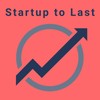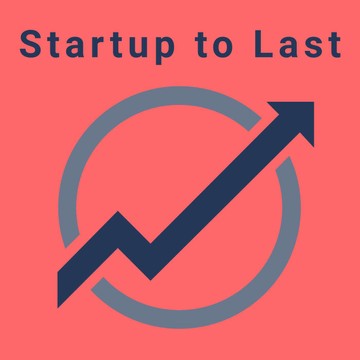

Startup to Last
Rick Lindquist and Tyler King
Two founders talk about how to build software businesses that are meant to last. Each episode includes a deep dive into a different topic related to starting, growing, and sustaining a healthy business.
Episodes
Mentioned books

Aug 7, 2020 • 1h 4min
The Sims, but way more boring
Here are the topics we discussed:LACRM shipped a handful of small improvements the interns had been working on.Tyler gives an update on the price increase.Rick is applying the positioning framework we applied last week which involved competitor analysis.Tyler officially decided to go with Sococo as a virtual office for the team while everyone is remote.Rick decided what to do with this Slack community.Rick's internship are wrapping up and he has a virtual get-together with all the interns next week.Tyler is getting close to deploying the first stage of his Webflow project.Rick wants to know how to maximize his experience with his first paid hire this fall.

Jul 30, 2020 • 1h 13min
Product positioning
Most of this week's discussion was about Obviously Awesome by April Dunford. We also gave some updates on the following topics:Now that Rick is fully committed to Legup Health, he's getting used to giving something his all again.Tyler is considering tweaking the plan for the coding fellowship.Tyler is evaluating Sococo to help with remote team culture.

Jul 23, 2020 • 1h 4min
Asking for too much info during signup
Note from Tyler: I'm sorry that my dog is whining in the background throughout this episode. I'll banish him from my room in future episodes. He's such a wimp.Here are some of the topics from this episode:Tyler's price increase went into effect, but it's too early to draw any conclusions.Rick has gotten great feedback from sharing his slide deck.Tyler has been tweaking how his team communicates remotely.Rick has heard from his early customers that he's asking them for too much info, but it's necessary for him to provide them with service.Tyler has reached a decision on what his mid-term product strategy will be.Rick is reconsidering his ambitions to run a Slack community.

Jul 16, 2020 • 59min
Building trust when you're an unproven business
Topics discussed in this episode:Tyler's growth is still going strong.Rick is going to write content to build trust with his early leads.Rick created a slide deck to explain his business. Check it out here and let him know what you think.Tyler is making long-term product decisions.Tyler is thinking about making no-code a core part of the coding fellowship next year.Rick recorded an interview with Memberstack which will be featured on their site.Tyler is going to invest in Earnest Capital.Rick had to give advice about how to come up with an idea.

Jul 9, 2020 • 1h 3min
Winning awards
Here are some topics from this week:Less Annoying CRM was named the #1 CRM by U.S. News and World Report.Tyler restarted employee raises after temporarily freezing them when the pandemic started.Rick now has fully self-serve onboarding.We discuss how to write a terms of service and privacy policy.Rick is making trade offs between sales and product time.Rick wants to retain some of his interns after the summer.Rick has validated that real estate is a good customer segment and is planning next steps.

Jul 2, 2020 • 53min
The dummy curve
Here are some of the topics we discussed this week:All of Rick's interns are onboarding, and things are going wellRick is building up a bit of sales momentumWe discuss whether or not it makes sense to create artificial scarcity by requiring a referral before signing up.

Jun 25, 2020 • 59min
A price increase is coming
Topics from this week:Tyler talks about the reaction he got when telling his customers about an upcoming price increase.Rick launched his referral program.Tyler is working on a new API for LACRM.Rick has finalized the interns he'll bring on this summer.Rick wasted a bunch of time talking to the IRS about a notification that was sent in error.We discuss HEY, the new email program from Basecamp.

Jun 18, 2020 • 1h 5min
How should a self-serve SaaS handle inbound enterprise leads?
Here are the topics we discussed this week:Rick's interns are acting as a forcing function to keep him more productive.Tyler has decided on a plan for LACRM pricing changes.Tyler has refined how he talks about project priorities with his team.Akshay from UserBit (a boostrapped company that makes software for UX teams) wrote in to ask about how we should handle inbound enterprise leads.

Jun 11, 2020 • 1h 1min
Curiosity or conviction
Here are the topics from this week:Tyler and Rick both have interns and need to figure out what projects they should be working on.Rick has been working on a client referral program.Tyler is wondering if there's anything for him to do to partner with customers who love LACRM.Rick was considering an intrapreneurship opportunity (working as an entrepreneur within a larger company) and decided against it.Tyler is struggling to prioritize product improvements.Less Annoying CRM will need to raise prices at some point. Tyler is wondering if now is the right time.

Jun 4, 2020 • 1h 6min
Racism
Disclaimer: This is an awkward topic to discuss, but it needs to be discussed. We do not claim to be experts, but we believe that as privileged white men, it's our responsibility to try to learn, challenge ourselves, and evolve. This conversation is a part of our attempt to do so.


